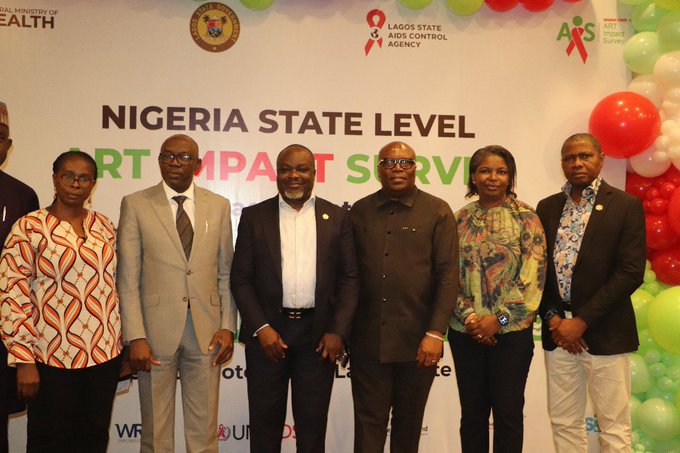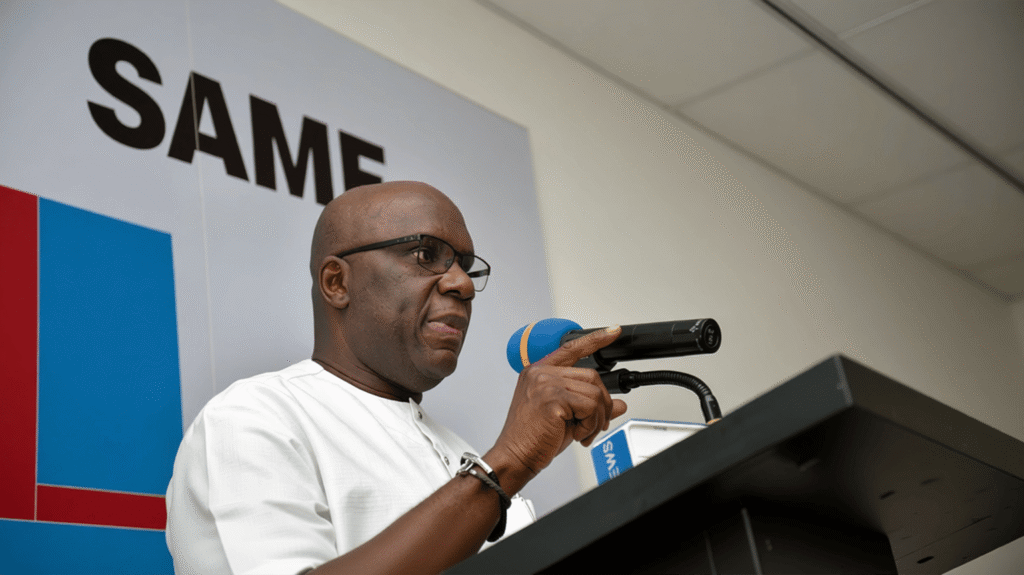Lagos, Partners Roll Out HIV Impact Survey to Boost Treatment Response

The Lagos State Government, in partnership with the Federal Ministry of Health, international agencies, and civil society groups, has unveiled the Antiretroviral Therapy (ART) Impact Survey to strengthen HIV intervention efforts in the state.
The statewide survey, which officially kicked off at a town hall meeting on Tuesday, will span 205 Enumeration Areas, 6,150 households, and about 11,397 participants across Lagos’ 20 Local Government Areas. It aims to determine HIV prevalence, assess treatment coverage, and measure viral load suppression among residents aged 15 to 64.
Speaking at the launch, Permanent Secretary of the Lagos State Ministry of Health, Dr. Olusegun Ogboye, described the exercise as critical to planning an effective HIV response.
“This survey is designed to provide the evidence needed to enhance treatment strategies and track progress. We call on community members, security agencies, and field teams to give it their full cooperation,” Ogboye said.
He urged survey teams to carry out their responsibilities with diligence, noting that each piece of data collected would influence both state and national health policies.
Dr. Ibrahim Dalhatu, Deputy Director for Epidemiology and Strategic Information at the U.S. Centers for Disease Control and Prevention (CDC), described the initiative as “scientific in design but people-centered in purpose.”
According to him, the survey will not only generate data but also shape health decisions that directly impact communities.
Also speaking, Dr. Chioma Ukanwa, who represented the National Coordinator of the National AIDS and STIs Control Programme, Dr. Adebola Bashorun, stressed that the ART Impact Survey is a globally recognized tool for epidemic control.
She explained that the survey would provide an accurate reflection of the HIV landscape in Lagos and guide future policy actions.
Representatives from the Nigeria Centre for Disease Control (NCDC), National Agency for the Control of AIDS (NACA), and APIN Public Health Initiatives all pledged support for the exercise, highlighting its role in measuring progress towards epidemic control and improving healthcare delivery.
Dr. Victoria Egunjobi, Director of Disease Control at the Lagos State Ministry of Health, emphasized that trust and participation at the community level would be vital to success.
“Today, stigma around HIV is fading, but we must continue to ensure that people living with the virus are treated with respect and provided equitable access to healthcare,” she said.
In his presentation on mobilization strategies, Lagos State AIDS Programme Coordinator, Dr. Oladipupo Fisher, outlined a three-phase community engagement plan involving posters, town halls, house-to-house visits, and targeted outreach.
He noted that survey teams and mobilizers would work closely with households to encourage participation and address misconceptions about HIV testing.
The survey is supported by PEPFAR, U.S. CDC, NACA, NCDC, APIN, LSACA, and other partners. Once completed, it is expected to produce the most reliable state-level data on HIV in Lagos, helping policymakers close gaps in treatment and prevention.









